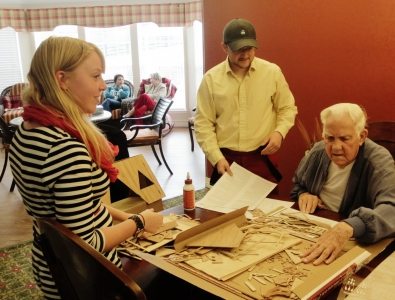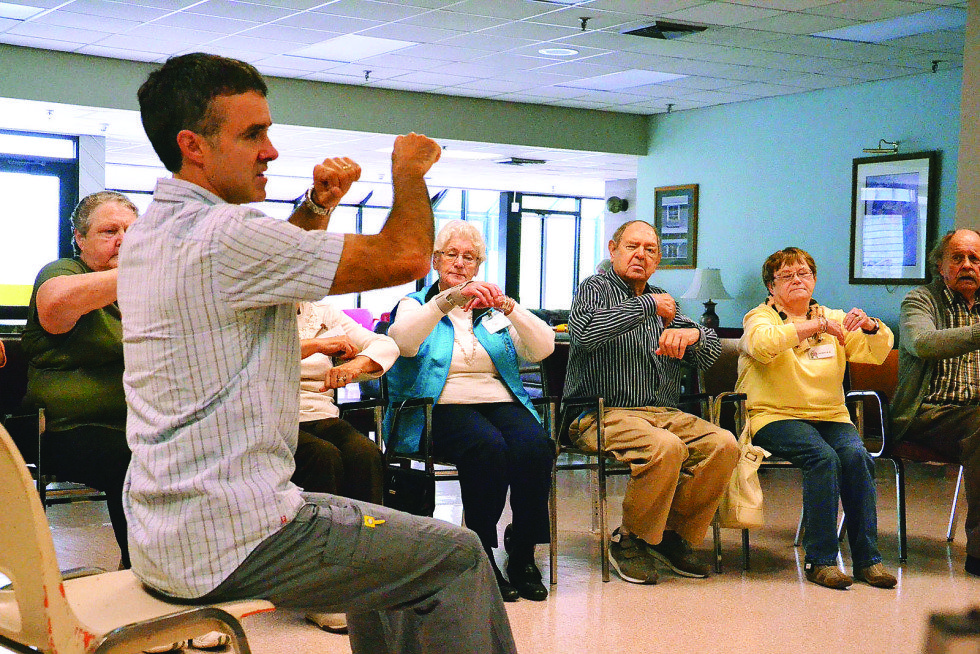A new and exciting web-based recreational therapy best practices guide is now one major step closer to reality. Initiated by the BC Care Providers Association (BCCPA) in partnership with the Ontario Long-Term Care Association (OLTCA) and the Alberta Continuing Care Association (ACCA), the guide is intended to become a one-of-a-kind tool for recreational therapists working in continuing care. A portion of the funding for the project came from Mitacs Accelerate, a national program designed to connect graduate students with industry partners for research internships supervised by faculty. Simon Fraser University (SFU) is the lead academic institution undertaking the research on behalf of the BCCPA.
Following an extensive literature review, phase one of the project is now complete and a survey has been developed which will be sent to recreational therapists and/or those who provide recreational therapy services in residential care homes across British Columbia, Alberta and Ontario.
With the support of the Mitacs Accelerate program, two postdoctoral fellows, Dr. Yijian Yang and Dr. Kim van Schooten from SFU, have been undertaking research on customized recreational therapy programs. Their research is being supervised by Dr. Stephen Robinovitch, of SFU’s Biomedical Physiology and Kinesiology department. The project partners (BCCPA, OLTCA & Mitacs) will be investing up to $30,000 to help develop the best practice guide which will be exclusively available to members for use in residential care settings.
 Once the guide is finalized, recreational therapists will be able to use the web-based tool to more easily access information and programs they can tailor to a specific client population. The guide should also allow users to input key information about the senior or a group of seniors they are working with and more readily determine what type of recreational therapy programs have the best chance of producing better health outcomes. It will make the whole process more efficient, save time and deliver better results for seniors.
Once the guide is finalized, recreational therapists will be able to use the web-based tool to more easily access information and programs they can tailor to a specific client population. The guide should also allow users to input key information about the senior or a group of seniors they are working with and more readily determine what type of recreational therapy programs have the best chance of producing better health outcomes. It will make the whole process more efficient, save time and deliver better results for seniors.
“These are the types of initiatives that can only happen at a province-wide level and through collaboration with our academic institutions,” says Daniel Fontaine, CEO for the BCCPA. “I am encouraging all of our members to be complete the survey over the coming weeks, as it will serve to strengthen the final product which we intend to make available to them by 2017.”
The BCCPA will be contacting members on Thursday August 11th to provide them with the survey in order to gather critical information they will need to develop the best practices guide. In particular, the survey will be sent out on behalf of the SFU researchers via the BCCPA policy department. Members will have up to September 16th to complete the survey. You will also have a chance of winning one of three $100 gift cards from London Drugs if you participate in the research survey.
BACKGROUND
- Over 50% of residents in long-term care fall each year, and about 20% of falls lead to injury. Falls are the cause of more than 90% of hip fractures and 60% of head injuries in older adults.
- Recreation therapy programs enhance the performance of daily activities and mobility among older adults in long-term care. They also lead to improvements in the social connectedness, mental acuity, self-esteem and communication. Recreation therapy programs expand residents’ engagement in meaningful activities and reduce periods when residents are inactive.
- However, recreation therapy professionals face challenges in engaging and maintaining the involvement of older adults in long-term care in recreation programs, due to the broad range of physical and cognitive impairment among this population and the lack of clarity about which programs are most appropriate for a given client.
- There is an increased need for personalized approaches to the design and selection of recreation programs in long-term care. Guidelines are required to enhance worker productivity by highlighting the programs that recreation therapy professionals should utilize depending on their client characteristics.




